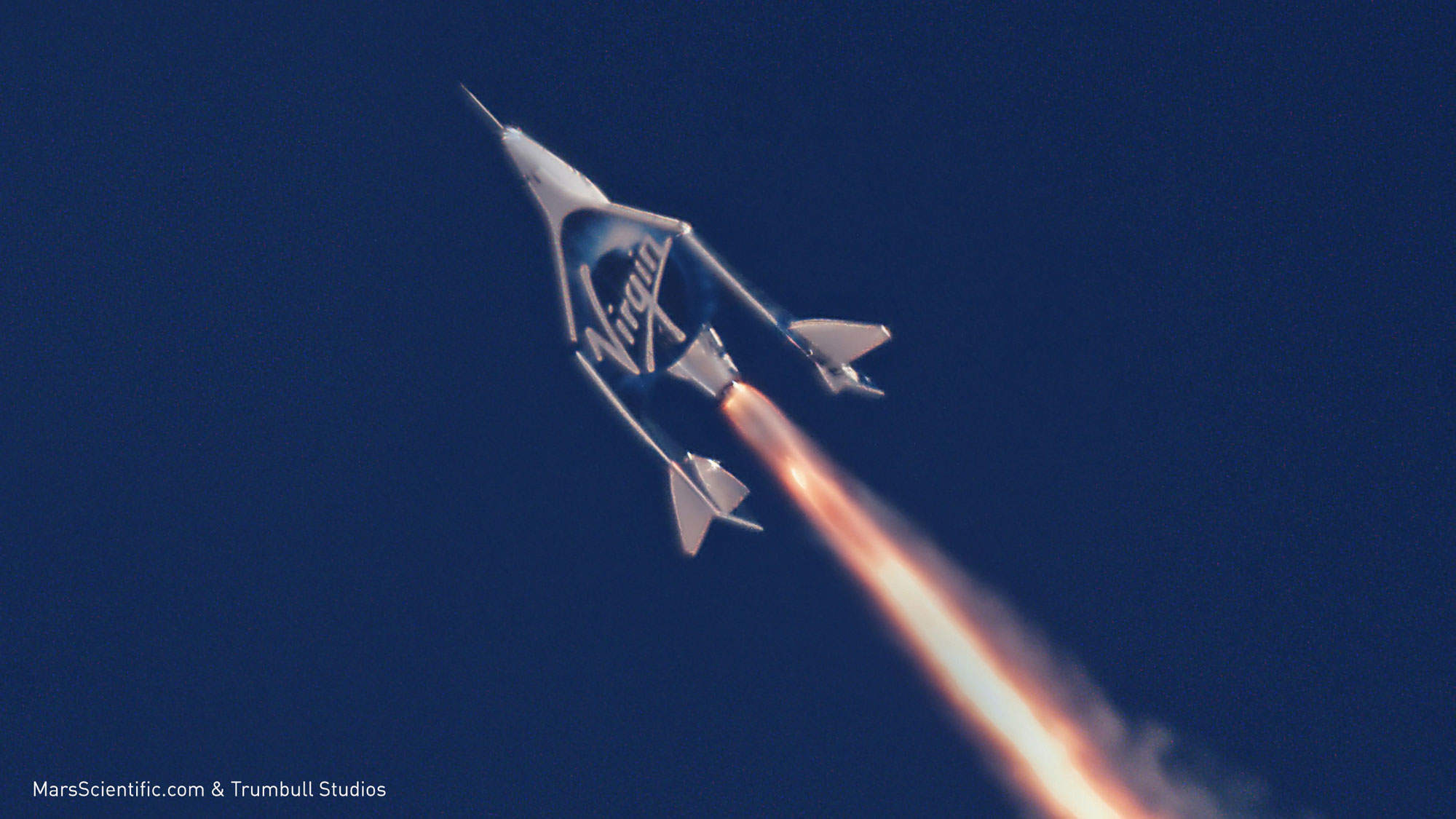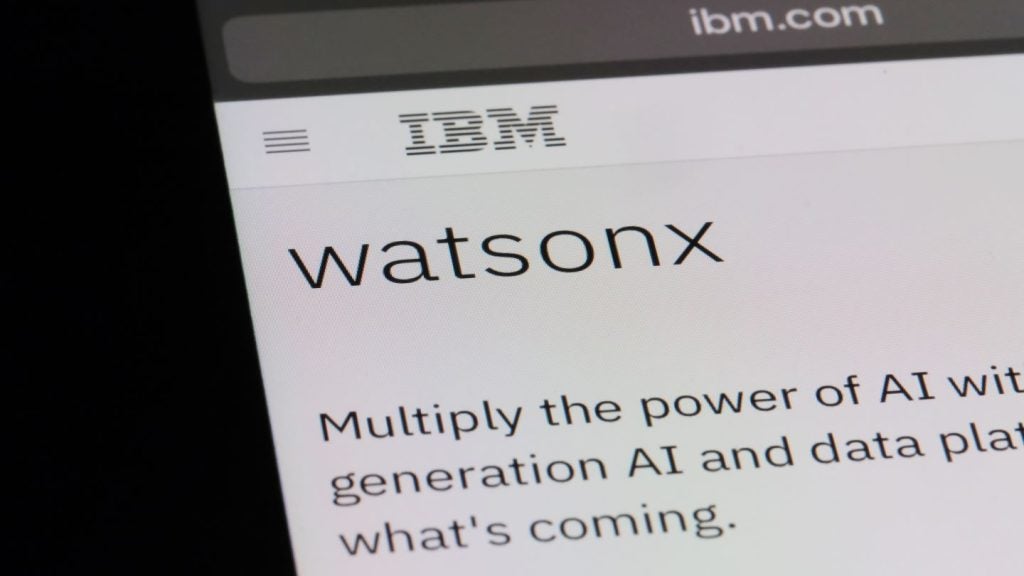
It’s incredible how far a good book series can take you.
For the aeronautical engineer, entrepreneur, global traveller, and Virgin Galactic future astronaut Julian Ranger, that book series was William Earl Johns’ Biggles series.
There were nearly 100 Biggles volumes published between 1932 and 1999 depicting the exploits of pilot and adventurer James Bigglesworth. The stories were written as Boy’s Own adventures extolling the British values of bravery, professionalism, and gentility.
For Ranger, Biggles’ adventures as a pilot in the Royal Air Force inspired his three dreams: to work with planes, to travel the world, and… well, we’ll get to that.
Speaking to Verdict, he explained: “I loved aircraft so I wanted to work in aviation so I did a degree in aeronautical engineering. I’ve touched some of the world’s fastest jets. I’ve done Tornado, and Eurofighter, and JSF, and Air15, big jets and small jets, and air traffic management.”
Ranger got his start working on the Tornado F3 fighter, but it wasn’t long before he was charged with integrating a very early version of the military internet on the aircraft. He claims that this was a particularly lucky case of being in the right place at the right time:
How well do you really know your competitors?
Access the most comprehensive Company Profiles on the market, powered by GlobalData. Save hours of research. Gain competitive edge.

Thank you!
Your download email will arrive shortly
Not ready to buy yet? Download a free sample
We are confident about the unique quality of our Company Profiles. However, we want you to make the most beneficial decision for your business, so we offer a free sample that you can download by submitting the below form
By GlobalData“I became a world expert in data and networking and everything else in the military when there were very few other world experts. When you’re lucky, you’re lucky; and you have to be a bit lucky. But then you have to capitalise on your luck.”
By the age of 23, Ranger was already a world-expert on the systems and ahead of the curve. He soon realised that he had taken it as far as he could in the military. Leaving the role behind, he founded Stasys, a technology and consulting firm specialising in network communications and defence interoperability.
In 2005, Lockheed Martin — the world’s biggest defence company — made Ranger an offer he couldn’t refuse. The entrepreneur sold Stasys for an undisclosed sum and he stayed on as Lockheed Martin’s vice-president of international strategy.
By 2007, Ranger chose to retire at the grand old age of 44.
It was then that he achieved his second ambition: to travel the world. He and his daughter spent two years travelling and had “a blast”, according to Ranger.
After returning to the UK, Ranger became bored and sought a new challenge. He founded Digi.me, a new company aimed at allowing users to have more control over their personal data. He also continued investing in new tech businesses.
However, Ranger’s ultimate life ambition still lies ahead of him.

New horizons
“The author of Biggles also wrote some less good space stories,” Ranger tells Verdict when we sit down to chat about his latest projects. “But that got me into Isaac Asimov and everything else. So I wanted to go to space.”
That dream was stoked by the moon landings, which Ranger saw as they were first transmitted when he was six years old.
“We all thought that everyone would be in space. So if you’d say I could be one of the first thousand humans in space, I’d have said ‘sign me up’,” he adds.
Still, it’s an ambition that’s easier said than done. Originally Ranger planned to sign up to be an astronaut as a teenager. Unfortunately, a particularly bad accident at 18 prevented that. Still, he suspects he would probably have failed anyway, as everyone wanted to go into space.
But almost as soon as he sold his business in 2007, along came Richard Branson and his infamous Virgin Galactic project. He recalls:
“Branson comes along and says he’s going to take people to space for $200,000 dollars. At the time it was $2.04 to the pound. So that’s less than £100,000. I had the money, I’d just sold my business, so I had to buy a ticket to space. That was in 2007. We’re here in 2018, and I’m still not going to go up until the back end of next year or early 2020. Just over 100th in line.”
What does being a Virgin Galactic future astronaut involve?
Speaking about his time on the Virgin Galactic programme, Ranger confesses he’s like a child again. His infectious enthusiasm in discussing the events he’s been to shows how effectively Branson has maintained excitement for the Virgin Galactic project more than a decade after announcing it.
One of the attractive benefits of being a future astronaut is the events which Virgin puts on. He reveals how he has touched some of the oldest history books in the world at Cambridge University, seen the UK Atomic Energy Authority actually performing nuclear fusion (a clean, viable alternative to nuclear fission which is what nuclear power stations do at the moment), and has visited Virgin Galactic’s facility in the Mojave desert to see some of the engineering going into the rocket which will take the first space tourists out of Earth’s atmosphere.
This latter event inspires a giddy glee in Ranger when he talks about it:
“The rigour with which they’re building this is amazing. They’ve got the best people from Nasa and other space agencies. I know they had an accident, but that’s what happens when you’re pushing boundaries. These things happen, it was fully explainable.
“Just to see the work they’re putting into the seat we’re going to be in is unbelievable. The amount of engineering and design in just the seat. It’s classic Virgin over-the-topness.
“As an engineer, as a human, as a future passenger I think it’s unbelievable. They’re opening up space.”
The next great frontier
Of course, Virgin Galactic is all well and good for the ultra-rich. Plenty of people would like to visit space but most don’t have a spare $200,000 lying around.
There are, of course, children looking up to the stars who will never earn $200,000 in their entire lives, let alone be able to spend that money on a seven or eight minute spaceflight.
In that context, it’s hard to argue that Virgin Galactic is, well, frivolous. It’s a debate which has come up recently with Amazon founder Jeff Bezos, whose Blue Origin company is also planning to take tourists to space. Bezos told attendees of an Axel Springer award ceremony in Berlin: “The only way that I can see to deploy this much financial resource is by converting my Amazon winnings into space travel.”
Bezos’s comments sparked a ferocious backlash as people questioned why Bezos couldn’t spend his fortune improving the lives of those less fortunate than himself.
What can space do for us?
Still, Ranger doesn’t think spaceflights for the ultra-rich are necessarily meaningless to the people on the ground. He said:
“You take tourism money and use it to build everything else. Now they’ve got Launcher One so they can put micro-satellites up and everything else. So it isn’t frivolous. Well, it is slightly. It is for me. But it isn’t in the grand scheme of things. It’s about opening up space to humanity.
“I think one of the simplest things is that we don’t know what we can do in space. Think about micro-gravity research. A protein is a folded carbohydrate. The different folds allow molecular things to happen in our body. That’s folded under 1G of gravity. But how would biological chemistry differ in micro-gravity? Could we come up with new medicines? Of course we can. You don’t need a degree to realise that if the way the whole of biological chemistry works on Earth is one G and it’s all down to how it folds, then it’s going to fold different and we’re going to get different biology in space. We can learn from that. And it’s the same with many other materials.
“[Elon] Musk might be the first to do it – he wants to use his [spacecraft] to do inter-continental flights up into space and back down again.
“Space is not just Musk’s ‘save the human race because we’ve screwed up our planet’, it’s much, much more than that.”
What about the near future?
Moving away from space, Ranger also spoke about investment trends down on Earth.
As an investor with his fingers in as many 20 different technologically focused businesses, Ranger is probably better placed than most to pick out the trends that the human race will be exploring in the coming decade or so.
Verdict asked Ranger to name his top areas of technology that will change the world over the next decade.
AI:
“AI is definitely there. I think people worry about AI, but you ask why people are worried about AI, and people are worried about how far it will go. But you’re not worried about the doctor knowing lots of stuff because you know where they got the data from and you know they’re trained to do it.
“I think people worry about AI because it mysteriously gets data and it mysteriously does its thing, and it mysteriously gets a result. If you take away some of those mysteries it’s just a clever doctor or a clever whatever else. And I think we’re removing the mystery because now you can actually do AI locally on your data.
“So I think AI is definitely a big trend, I think it will get bigger, I think it will get more private and secure and do amazing things for us and we’ll get more comfortable with it just as we’re comfortable with going to a doctor or a travel agent or any other expert. We will have more faith because there’ll be less we don’t know.
“At the moment it seems like, ‘how did you get that? I didn’t give you my data’. That’s spooky, right? If someone comes and says ‘you’ve got cancer’ out of the blue, you’re going to say ‘what the heck?’. But if you’ve given them all your data and they’ve assessed it and then they say you’ve got cancer – well, you’re still going to be upset – but at least you’ll understand.”
Blockchain:
“Blockchain, of course – everybody talks about blockchain. My view is that many, many things about Blockchain are overhyped but there’s definite value. There’s no doubt about it. By different economic models, definitely.
“There’s lots of coins and some of them will fail and we’ll have to work out how to handle different currencies, because most of us only deal with one currency at a time. But eventually they’ll make it usable and there’s a definite economic model. It’s not a place to hold your data. But decentralisation is a good thing – I mean, digi.me is a decentralised thing.”
Medical technology:
“Medtech is absolutely on the verge of a complete change because we couldn’t do much with it because we didn’t have our data. But now we’re getting really quite good. So if you look what was just released literally yesterday, this thing called RetinaRisk. We spend £100m per year in the UK alone checking people with type one diabetes for RetinaRisk. Now there’s an app which can do it for you because you’ve got your data and you can do stuff.
“The fact that we can bring a lot of this stuff to us will open up whole new areas of tech and get people investing in those. It’s like how electricity opened up a load of new stuff.
“Just think about genetics. If I’ve got my genetics, which isn’t expensive to do anymore, I can decide whether somebody sees it. We can do stuff that we’ve been felt a bit creeped out about. You know, you’ve been a bit creeped out when somebody has got your genetics, there’s not much more personal than who you are. But if I’ve got it and apps can decide with me now all of a sudden all that promise can happen in new ways. I’m fascinated by all that. And that’ll take a few years before all that starts going. But it will all be involved in our genetics.”
Human augmentation:
Before we speak about this particular slice of future technology, Ranger holds out his hand. Just between his thumb and index finger, there’s a small red spot. This, he explains, is where he installed a programmable NFC chip. He has already programmed his emergency contact details into it so his family could be contacted in the event of an emergency. He said:
“I’d call myself a proto-cyborg. But I’m the earliest stage, I’m beginning. But if you think about it – I’ve had knee operations, my knees are knackered – if that gets worse and I struggle to walk why wouldn’t I just have my leg chopped off and put a false leg on? In the grand scheme of things, why not? It’s not too ridiculous. If you’d had said that five years ago, people would have said ‘don’t be so stupid Julian’.”
The dangers of running towards the future
As we end our time with Julian, he suggests that, far from scientists and entrepreneurs, it might be journalists and PR professionals who shape our future in the most meaningful ways.
“There are all sorts of ethical dilemmas. I don’t necessarily think politicians are going to be as quick as technology races ahead. I don’t think we’ve got the ability to explain in simple language so people will understand the ethical dilemmas. It isn’t the public’s fault, I think we need more people like yourselves who can take complex stuff and explain it simply. If we’re going to get the ethics, we need to have them explained simply and unbiased and independently so that we can have a proper ethical debate.
“If I had one worry about the future, it’s that. It’s that the translation of this humongous technical world to people who are using it, but don’t understand the ethics. We need to be able to explain tech in languages that people understand. That’s why I use analogies. But they take a long time. We get better but none of them are perfect. It’s really hard. There’s a call out for more people who can take tech and explain it simply.”
He notes that nuclear fusion, which he mentioned previously is a safe, clean, viable, and cheap energy solution which could reshape the future of the human race. However, the word ‘nuclear’, while technically correct, will no doubt cause concern for some, despite this technology being worlds away from that which caused the Chernobyl disaster.
Ultimately, Ranger has an incredible amount of insight into what the future may look like and has enormous experience in innovations. And to think, it was all started by Biggles.







